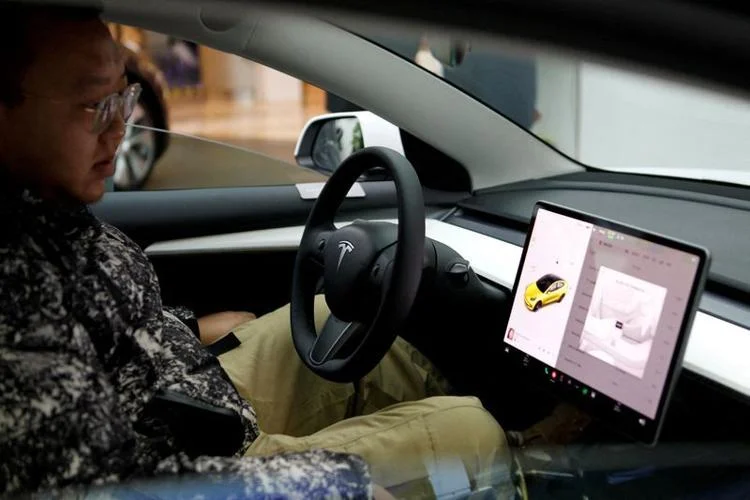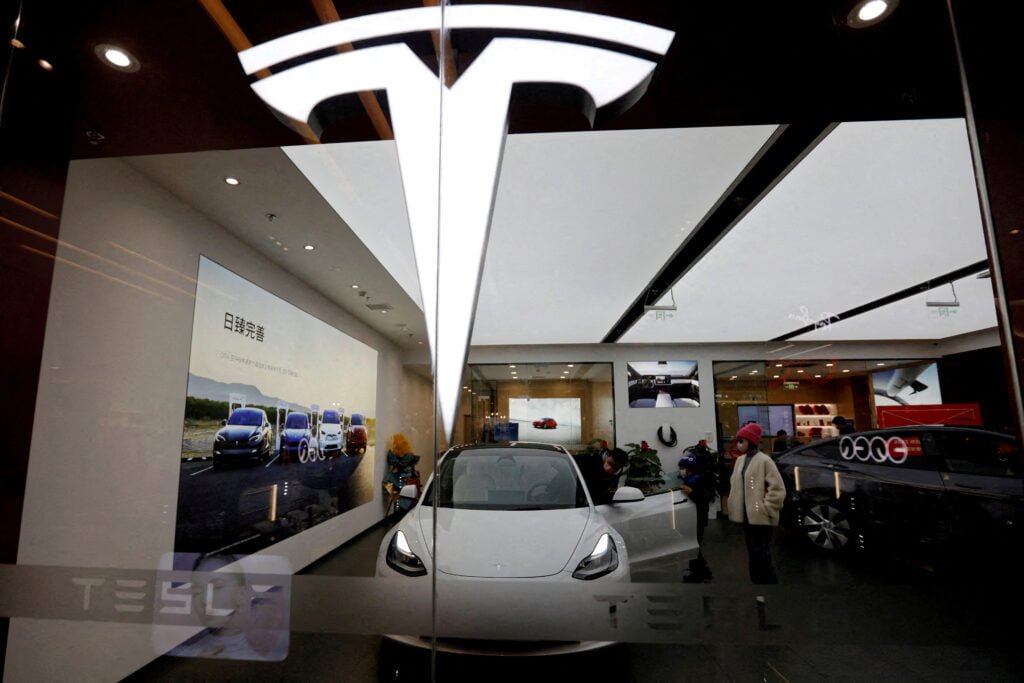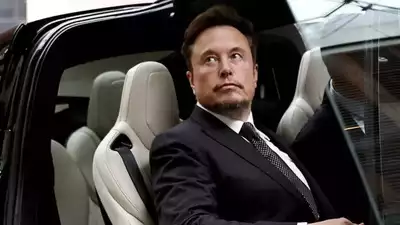Tesla is moving forward with its plans to enhance its global self-driving system by utilizing data from China, potentially processing this data locally. This shift is part of a broader strategy by Elon Musk, according to sources familiar with the matter.
As part of this initiative, Tesla is considering establishing a data center in China to train the algorithms necessary for fully autonomous vehicles. This development comes from two anonymous sources. Previously, Tesla’s efforts focused on securing approval from Chinese regulators to export data generated by its electric vehicles (EVs) in China for its Full Self-Driving (FSD) system, according to these sources and another person with knowledge of the matter.
It is still unclear whether Tesla will pursue both data transfer and a local data center, or if it is developing these plans concurrently as a precaution.

These efforts highlight Tesla’s rapid pivot towards AI advancements amidst a slowdown in EV demand and heightened competition. This move to utilize data from Chinese vehicles for AI development coincides with the U.S. government’s efforts to restrict the transfer of AI technology to China.
Currently, Tesla has not been able to offer the full version of its FSD system in China, which costs nearly $9,000. Expanding the FSD market in China could significantly boost Tesla’s revenue and profits, which are under pressure from Chinese competitors like BYD. Tesla did not respond to requests for comment.
Creating a data center in China for FSD development would necessitate a partnership with a local company, according to two sources. Additionally, there may be challenges in sourcing hardware. Tesla has had discussions with Nvidia regarding the acquisition of graphics processing units for the data center, although U.S. sanctions prevent Nvidia from selling its most advanced chips to China. Nvidia declined to comment on these discussions.
Tesla’s push to increase the use of data from China was intensified by a recent visit by Musk to Beijing, where he met with officials, including Premier Li Qiang, to facilitate data transfer permissions. The possibility of investing in a data center in China was also discussed. Additionally, Musk considered licensing Tesla’s FSD systems to Chinese EV manufacturers.
China, being the world’s largest car market, has a vast fleet of sensor-equipped vehicles that collect valuable data from its complex urban traffic, making it a crucial resource for automakers and AI developers. Initially, Musk opposed the idea of a China-based data center, preferring data transfer to the U.S., according to two sources. Since 2021, Tesla has stored data collected from its Chinese EVs in Shanghai, while seeking regulatory approvals to transfer this data out of the country.

Under a new pilot project in Shanghai’s Lingang Area, companies, including Tesla, can transfer certain data without additional security assessments. Analysts believe Musk aims to use China as a launchpad for self-driving technology, similar to how the Shanghai Gigafactory boosted Tesla’s mass-market EV production.
“Achieving FSD deployment in China and using local data for training would be a significant milestone for Tesla,” said Yale Zhang, managing director at Shanghai-based consultancy Automotive Foresight. He noted China’s key role in scaling up Tesla’s EV production and its potential to drive mass adoption of autonomous driving technologies.
Fully autonomous cars are still years away, but driver-assistance features like Tesla’s FSD and Autopilot are currently level-two systems, requiring driver attention. More advanced level-three systems, which allow hands-free driving, are being tested by companies like Baidu and Pony.ai in limited zones.
Chinese EV manufacturers, including BYD, prioritize self-driving and advanced driver assist systems. Mercedes and BMW have licenses to test level-three systems on a wider range of Chinese roads. Several automakers, such as Hyundai, Mazda, Toyota, Volkswagen, and Nissan, have approvals to transfer some data out of China, but not for AI training purposes, according to legal and media sources.
Violating China’s 2021 data privacy laws poses significant risks for data operations, foreign business groups warn. Musk, addressing competition from Chinese EV makers, emphasized Tesla’s identity as an AI company and expressed confidence in the adaptability of its FSD system across markets, with improved performance through localized training.



